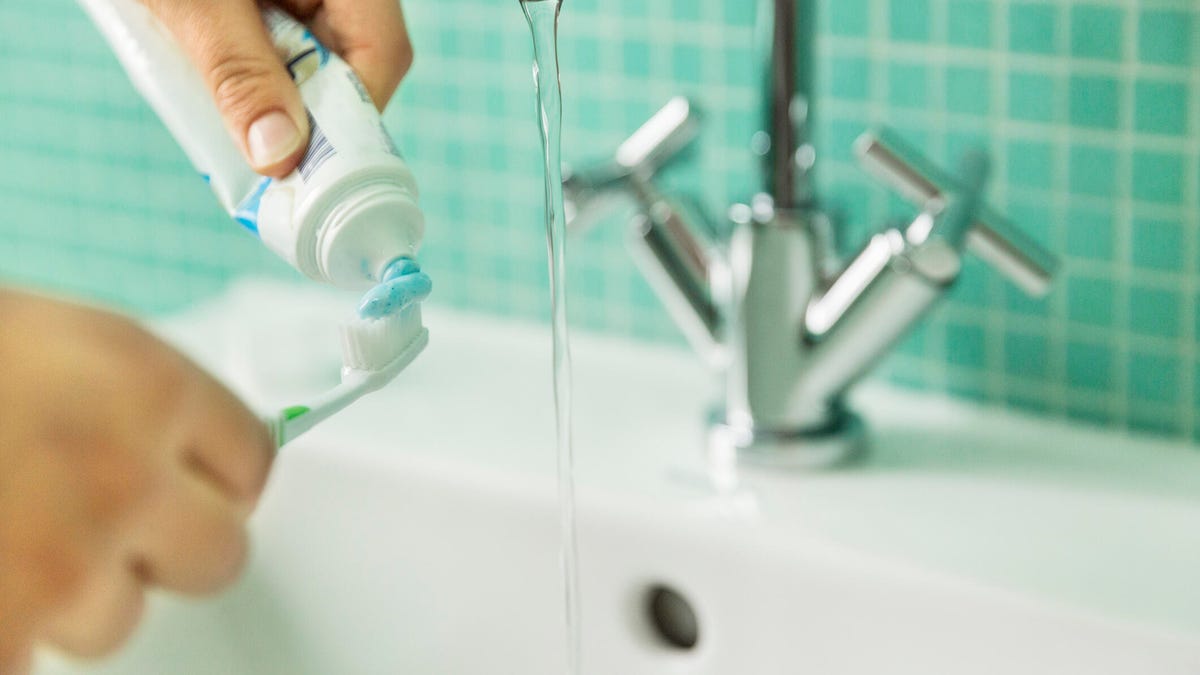 Why You Can Trust CNET
Why You Can Trust CNET Should You Brush Your Teeth Before or After Breakfast? It Depends on What You Eat
If you have coffee first thing in the morning, you're going to want to read this.

Some people wake up in the morning and head straight to the bathroom to brush their teeth. Others wait until they've had breakfast to do so.
Whichever side you're on, you may think that when you brush your teeth isn't that important. However, it does matter. Whether you brush your teeth before or after breakfast has a profound impact on the health of your pearly whites, and it depends mainly on what you eat and drink in the first few hours of your day.
When to brush your teeth in the morning
You brush your teeth once in the morning and once at night. Those guidelines established by the American Dental Association have been in place for what seems like forever, and they're the bare minimum for keeping your teeth and gums healthy. However, the twice-a-day rule doesn't tell you anything about timing.
Madison Kaplan, a registered dental hygienist in California, says she encourages of her patients to brush after breakfast. It's the best way to ensure removal of food debris and beverages that can stain your teeth, she says.
Brushing after breakfast, instead of before, means your teeth are free of food particles for more of the day, which means the bacteria in your mouth have less time to metabolize sugars and cause cavities or enamel decay.
If, however, you consume acidic foods or beverages for breakfast, it may be better to brush before breakfast. Brushing your teeth after consuming something acidic, such as coffee or fruit, can harm the enamel of your teeth. For this reason, the American Dental Association recommends waiting 60 minutes after eating those foods to brush your teeth.
If you don't have time to wait around for an hour to brush after breakfast (for instance, if you eat on the way to work), swish with water so food doesn't stay lodged between the teeth and drinks that have staining potential don't sit there all day, Kaplan encourages. "The more you can flush out food and bacteria, the more optimal oral health you will achieve," she points out.
What about coffee?
Many people have been taught to brush their teeth after drinking coffee in order to reduce or prevent staining. Coffee is extremely acidic, however, and "one of the biggest concerns when brushing after consuming something acidic is erosion to the enamel," Kaplan says.
"Even though enamel is one of the hardest structures of your body, most similar to the calcium content in our bones, the physical action of brushing can weaken the tooth structure," she explains.
"The bristles rub the acid into the porous enamel of the teeth, which can cause permanent damage over time," Kaplan says. If you want to brush after drinking coffee as a stain-prevention method, wait about 30 minutes after you're done. This gives your mouth time to neutralize and wash away the acids from the coffee so that you don't rub those acids into your enamel with a toothbrush.
Another way to prevent staining is to drink all your coffee for the day in one sitting rather than sipping on multiple small cups throughout the day, Kaplan says. "The consistent sipping promotes constant acid exposure and the increased risk of staining potential since the teeth don't have an opportunity to recover throughout the day."
And orange juice?
The concern about brushing your teeth after drinking orange juice is the same as that of coffee: the acidity. Just like brushing after coffee, brushing after orange juice can contribute to enamel erosion, resulting in weaker teeth over time.
Anyone who's ever brushed their teeth and then drunk orange juice knows just how unpleasant the beverage tastes in a minty mouth. If you can't give up orange juice at breakfast, try brushing first and then swishing with water when you're done. Using floss picks can help you remove food debris without the abrasiveness of brushing.
Can you brush both before and after breakfast?
Brushing before and after breakfast or coffee is one way to get rid of icky morning mouth and also remove food debris after your first meal. Kaplan urges people to be mindful of over-brushing though.
"There is such a thing as over-brushing, and it can wear away the gums," Kaplan says. If you want to brush your teeth before and after breakfast, focus on good brushing technique, which is crucial to prevent trauma to the gums or gum recession, she says.
"You are only removing the bacteria and any food particles that have accumulated since the previous brush and flossing session, so it shouldn't need to be so intense," Kaplan explains. "Gentle pressure, a slow pace and the proper brush head are key to prevention [of gum recession]."
The important thing is keeping your teeth and gums clean throughout the day, Kaplan says, and timing will look different for different people. "Getting in between the teeth daily -- sometimes multiple times a day, depending on your dental needs and dental history -- helps prevent food impaction, gum trauma and cavities over time," she says.

